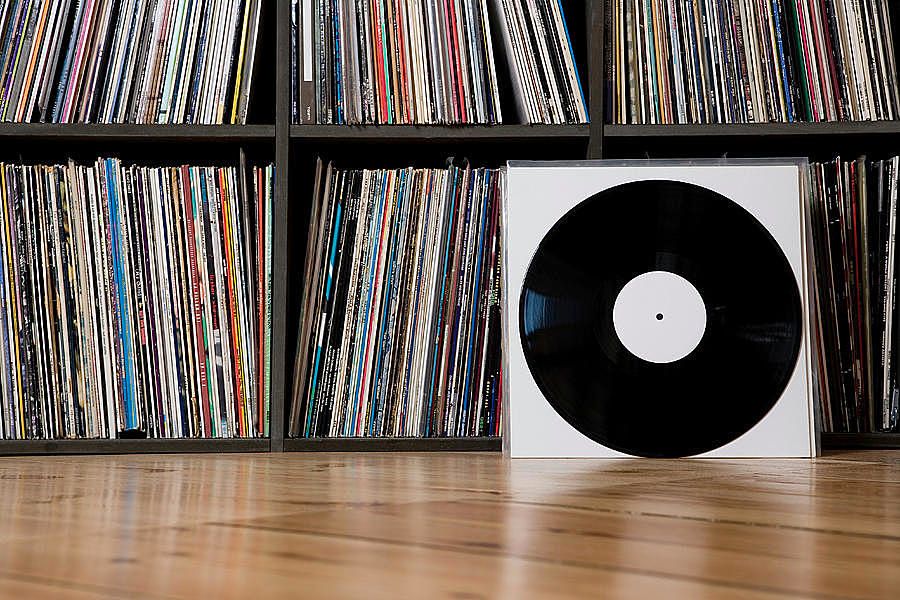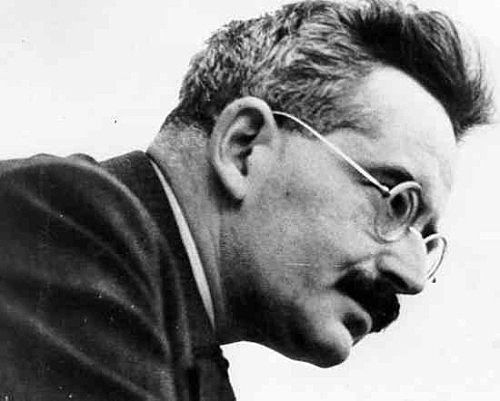Scarce Pleasures, Heavy Loads: Selling My Records
In a year, Henry Oliver left a job, closed a bar, had his first child and did the one thing that would have once seemed more terrifying than any of those: sold off most of his records. He traces the outline of his own collecting habits, and what they meant.
In the last year, my life changed immeasurably. I became a father, gave up a career and closed the bar my wife and I opened six years ago. All of which lead to an intensive period of reevaluation. Everything was suddenly an opportunity for change. When looking around our house, considering how our lives would need to change to accommodate another person, I saw the records spilling out around the house - on the floor next to overflowing shelves, stacked in the shower of our second bathroom - and realized that not only did I need the space, I needed the money.
I have been carrying some of these records with me most of my life. When I was eleven and CDs were on the ascendance, I saw an episode of Beyond 2000 dismissing them as a merely transitional format, soon to be replaced by the smaller, more durable MiniDisc. Not wanting to be stuck with the audio equivalent of Betamax video, I vowed to stand by records and cassettes until something better came along. It never did.
Buying records fit perfectly into the early-90s aesthetic of self-imposed alienation. As CDs seized retail space from cassettes, the oldest and chunkiest format was demoted. Store by store, the two shelves of records in the back corner soon became ten shelves of cassettes. Records became harder and harder to come by, but that difficulty just increased their purported cultural value. Every time Kurt Cobain name-dropped lists of records in Spin, it was a roll of the dice to pick one to spend money on and wait 6 weeks for. When Meat Puppets II arrived at my local ‘alt’-friendly record store, I listened to it every day for months, saving pocket money until enough funds were raised and another order arrived. Ever since, the modes of acquisition have changed as my life has: high school years saving on bus fares and instead sending USDs hidden in envelopes; course-related costs going straight from the government to me to Crawlspace Records; unemployment and endless hours at Real Groovy; my first credit card and insound.com; hours walking around Berlin just to buy a Can record (any Can record) in Germany; student (again) bargain-hunting on Discogs; cherry-picking a collection from scratch for public consumption; disposable income and liberated spending; reduced income and records as luxury items.
The first subtraction was selling the double-ups, records from the bar that were already in my personal collection or long-held duplicates from when my wife and I combined collections. Selling that initial batch was like being given money for the weight off my shoulders. In an almost perfect mirror of my years of acquisition, once I started selling, it was hard to stop. Seeing records which had been suffocating on my shelves finding new, more loving homes, I felt that completist impulse, integral to collecting, quickly dissipate. “Once one rejects the principle of completeness, ... the main feeling is how few books you need,” Geoff Dyer writes in ‘Unpacking My Library’, his homage to Walter Benjamin’s essay of the same name. “Throw away three and according to the same criteria by which they were excluded you can get rid of another thirty or three hundred or three thousand.”
I needed to figure out what my criteria was for selling these records. How far was I prepared to go? Was I still a collector? Or was I just needlessly holding onto possessions that were no longer used for their intended purpose? I decided that although I wanted to keep the best examples of genres I’ve gone deep down the rabbit hole with over the years, I have no conceivable need for the minor works in minor subgenres that have fallen so far adrift from my listening habits as to be purely sentimental. And I certainly no longer need sleeve variations, pressings from various countries or ‘backup’ copies (as if the supply of secondhand records was suddenly going to dry out). But depleting my record collection meant also shedding my self-identity as a collector.
The theories behind the psychological impulse to collect are numerous and varied, but tend to fall within one or more of the following: an attempt to impose order on a chaotic world (acquiring, grading, cleaning, alphabetising), an attempt to simplify life (narrowing one’s desires to specific objects missing from one’s collection), a manifestation of narcissism (the collection as self-portrait/autobiography), a denial of death (the collection as monument to the collector), an alternative masculinity (‘marginalised’ males acquiring power through connoisseurship) or just garden variety obsessiveness. Perhaps my timing was not so coincidental given that having a child fulfills many of these same impulses: a distraction from one’s self, a desire to create a replication/improvement of yourself, and the solace that a part of you lives on in your child after your death.
Rather than subscribing to one theory or another, I have found the impulse to collect takes different forms, mutating over time, depending on the context of what else is happening in one’s life. And, setting aside why I amassed a collection in the first place, I was still a music enthusiast, just less of an archivist. What’s more, although I have come around to streaming services and have finally gotten over the illusion that records empirically sound better, the LP is still my preferred method of music consumption. After all, records are reproductions rather than the music itself, utilitarian objects that are more than just plastic and cardboard. But collecting is not a utilitarian endeavour. Someone who buys records and just listens to them does not collect records so much as consume them. The purpose of collecting is not to use the objects being collected but to acquire, to curate, to relate to the object in a way that is separate to use.
According to Benjamin, “ownership is the most intimate relationship that one can have to objects”. That relationship is deepened by the non-functional aspect of an object. The less you need the object to do what it was assembled to do, the more the memory of its acquisition, and the pleasure of its ownership, become a pedestal/base/frame on or in which the object continues to exist.
For Benjamin, it would not be the music or recording the collector relates to, but the record itself. The secondary nature of the music in relation to the record is seen best in the kind of record collections so large that records disappear into them, lucky to be played before filing, often never to return from the shelves. In his ‘Unpacking My Library’, Benjamin tells an apocryphal tale of the French writer Anatole France who was asked by a ‘philistine’ whether he’d read all the books in his expansive library. “Not one-tenth of them,” France said. “I don’t suppose you use your Sevres china everyday.”
According to Jean Baudrillard, whose own theory is set out in his essay ‘System of Collecting’, all objects can serve two functions: the practical (an object serving the purpose for which it was made) and the abstract (an object serving a purpose not connected to its intended practical function). For Baudrillard, objects being used for their practical function cannot be ‘possessed’ (as opposed to ‘owned’) as their usefulness exists in relation to the outside world rather than just the fact of ownership: “once an object stops being defined by its function, its meaning is entirely up to [its owner].”
On the other hand, the object “divested of its function, abstracted from any practical context” is now only useful as an object to be collected. So, for Baudrillard, collecting is “always both satisfying and frustrating,” as once objects lose their relationship to practical function, the only relationship they have (other than with their owner) is with other objects. Objects belong to a set, which is initially finite but ever extendable, making satisfaction impossible. “The collection is never initiated in order to be completed,” he writes. “The most important piece in the collection is the missing one”.
The impossibility of completion is both the joy and terror of record collecting. The infinite nature of the task is what makes it fun - every time you enter a store it could contain something unexpected, something rare, something valuable, something magical - but also what makes it ultimately fruitless. In the digital age, I’ve found the appeal of completism dissipate. Before the Internet effectively monopolised collecting, it took time to trawl through record bins, weather record fairs, and brave dusty antique stores that almost never turn up anything of interest. But now, with eBay, Gemm, Discogs and message boards, collectable records, records that one would have waited patiently to unearth in a reasonable condition at a reasonable price, are now available 24/7, just a click and a credit card away. Such records are no longer rare in the sense of being hard to find, but are simply rare in the sense that they are expensive.
The physicality of records en masse makes the collector feel permanent, rooted to their current place. The sheer heft becomes psychic weight. Home is where the record collection is. And this is what I found myself increasingly at odds with. Despite my thirtysomething commitments, I increasingly desire a svelteness that is incompatible with collecting. I want to reconnect with records as practical objects that can come when they’re needed and go when they they’re not. I want that ease. I want that lightness.


